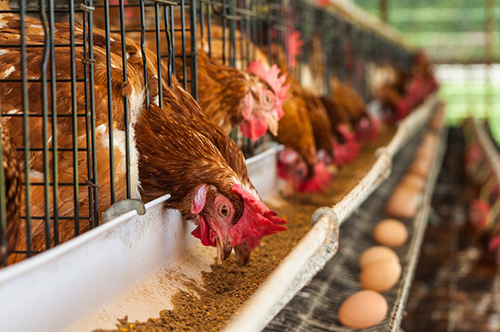
Antimicrobial resistance: Farmer field school initiative
One of the world's most pertinent public health threat is antimicrobial resistance (AMR). Also known as the silent pandemic, AMR happens when bacteria, viruses, fungi and parasites change and stop responding to medication, making infections harder to treat and increasing the risk of disease spread, severe illness and death, both in human and animal populations.
AMR is a world-wide scale concern, especially in developing nations such as Ghana.
Interventions
The Food and Agriculture Organisation (FAO) in collaboration with Veterinary Services Ghana has supported the growth and development of agriculture in the country with several interventions, including advocacy on AMR.
One of such interventions is antimicrobial use (AMU) behavioural change in poultry farmers through the farmer field schools. This intervention was started in 2016 at Dormaa in the Bono Region (Ghana’s biggest poultry hub); a town that also faces the challenge of being one of the porous border towns on the Ghanaian-Ivorian border, resulting in the smuggling into the country of a lot of antimicrobials that are off the radar, which is used in the poultry food value chain.
The poultry sector was selected as the target of focus, due to the high demand for poultry and eggs as the cheapest sources of protein in Ghana.
Farmer Field School
The Farmer Field School is a group-based learning process that has been used by governments, NGOs and international agencies to promote new farming interventions and practices over a period (ranging from weeks to months).
This concept allows lectures, focus group discussions and demonstrations on the field by experts, such as vets and technical programme officers from FAO and WHO. It was used to execute the antimicrobial use behaviour change intervention in Dormaa for egg production and it yielded results, making farmers now the ambassadors of this behaviour change in their localities.
The goal of the intervention is to get poultry farmers to understand the repercussions of overuse and misuse of broad-spectrum antibiotics in poultry farming from week one till they are due for the market or during the egg production phase.
It ensures and promotes prudent uses of antibiotics when prescribed. In 2021, a group of poultry farmers in broiler production were selected from two districts in Bono Region (Dormaa & Wamfie).
Twenty-five farmers from Dormaa and 35 farmers from Wamfie went through the curriculum of the farmer field school for some months. The trained farmers were tested, and an evaluation of the concept was done.
From evaluation, it was observed that farmers that were implementing protocols, observing good practices learned from the Farmer Field Schools, and under controlled conditions of antimicrobial use with veterinary supervision, produced eggs that were of high quality and weight, and also saw a sharp decline in egg decay. Farmers observed increases in productivity, a boost in the immunity of their birds, and a decrease in their buying of expensive drugs.
The writer is an Assistant Veterinary Technologist,
National Food Safety Laboratory,
Veterinary Services Directorate,
Accra.
